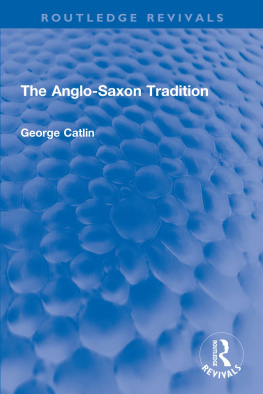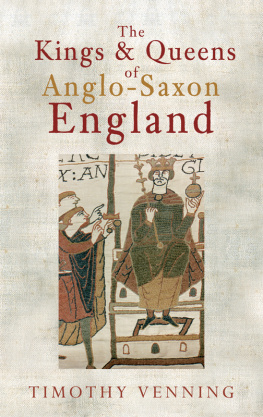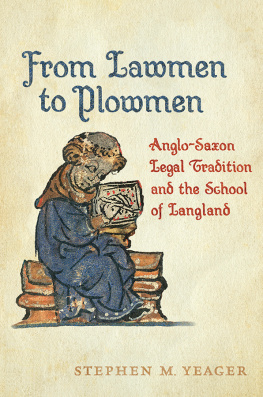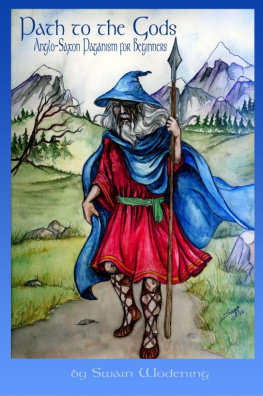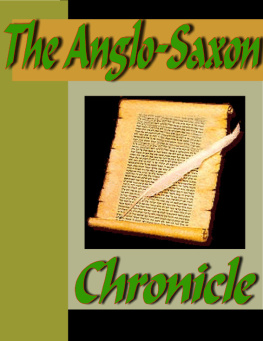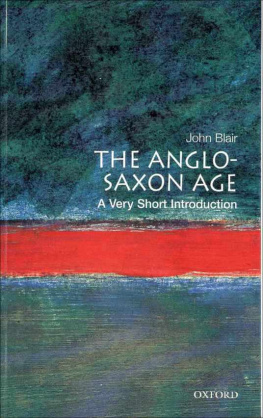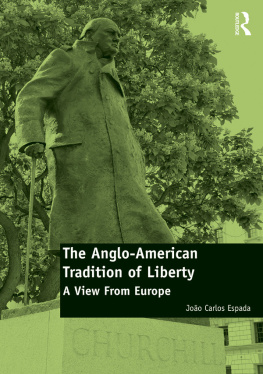Routledge Revivals
The Anglo-Saxon Tradition
First published in 1939, The Anglo-Saxon Tradition puts forward Catlins view on the power of the Anglo-Saxon Tradition to unite Europe.
The book identifies the distinguishing features of this Tradition as respect for personality, liberty, experiment, tolerance, accommodation, democracy, federalism, moralism, and public spirit, and emphasises its role in standing against contemporary totalitarian ideologies. The volume outlines Catlins plan for the confederation of Anglo-Saxony in relation to what he presents as the central issue for civilisation: the conflict between the ideal of Dominion over Man, and the ideal of Power over Things.
The Anglo-Saxon Tradition will appeal to those with an interest in the history of philosophy and the history of political thought.
The Anglo-Saxon Tradition
By George Catlin

First published in 1939
by Kegan Paul, Trench, Trubner & Co. Ltd
This edition first published in 2020 by Routledge
2 Park Square, Milton Park, Abingdon, Oxon, OX14 4RN and by Routledge
605 Third Avenue, New York, NY 10017
Routledge is an imprint of the Taylor & Francis Group, an informa business
1939 George Catlin
All rights reserved. No part of this book may be reprinted or reproduced or utilised in any form or by any electronic, mechanical, or other means, now known or hereafter invented, including photocopying and recording, or in any information storage or retrieval system, without permission in writing from the publishers.
Publisher's Note
The publisher has gone to great lengths to ensure the quality of this reprint but points out that some imperfections in the original copies may be apparen.
Disclaimer
The publisher has made every effort to trace copyright holders and welcomes correspondence from those they have been unable to contact. These are re-issues of books published some years ago which are inevitably a reflection of the time in which they were published. The language used is indicative of that time and as such no offence is intended by the re-issuing of the books.
ISBN 13: 978-0-367-67892-0 (hbk)
ISBN 13: 978-1-003-13328-5 (ebk)
THE ANGLO-SAXON TRADITION
By
GEORGE CATLIN

First published 1939
CONTENTS
- I
PROLOGUE - AN OPEN LETTER
- (i) Introductory: The Grand Tradition of Humanism
- (ii) The Anglo-Saxon Tradition
- (iii) Marx-Stalinism and Russia
- (iv) Germany
- (v) Anglo-Saxony
- (vi) The New Commonwealth
- (vii) Anglo-Israel
- (viii) Science and Freedom
- (ix) What of Socialism?
- (x) The Task
- II
THE NOTES OF THE ANGLO-SAXON TRADITION - I. HUMANISM
- II. FREEDOM
- III. EXPERIMENT
- IV. TOLERANCE
- V. DEMOCRACY; ACCOMMODATION; FEDERALISM
- VI. MORALISM
- VII. PUBLIC SPIRIT
- III
CONCLUSION - (i) The Anglo-Saxon Way of Life
- (ii) The Latin and Catholic Traditions
- (iii) The Challenge from the Totalitarian Ideologies
- (iv) Where We Stand
- AN OPEN LETTER
- (i) Introductory: The Grand Tradition of Humanism
- (ii) The Anglo-Saxon Tradition
- (iii) Marx-Stalinism and Russia
- (iv) Germany
- (v) Anglo-Saxony
- (vi) The New Commonwealth
- (vii) Anglo-Israel
- (viii) Science and Freedom
- (ix) What of Socialism?
- (x) The Task
- II THE NOTES OF THE ANGLO-SAXON TRADITION
- I. HUMANISM
- II. FREEDOM
- III. EXPERIMENT
- IV. TOLERANCE
- V. DEMOCRACY; ACCOMMODATION; FEDERALISM
- VI. MORALISM
- VII. PUBLIC SPIRIT
- III CONCLUSION
- (i) The Anglo-Saxon Way of Life
- (ii) The Latin and Catholic Traditions
- (iii) The Challenge from the Totalitarian Ideologies
- (iv) Where We Stand
Guide
To
HU SHIH
WHO PERHAPS ALONE AMONG
MY FRIENDS CAN READ THIS BOOK
WITH DETACHMENT
FOR some time it has been my conviction that, if we are to stand firm in the days that are coming, we must consider well the rock whence we are hewn and the root whence we are sprung.
The substance of the following work on that theme was delivered in the form of lectures in Washington, D.C., during March 1939, by the hospitable imitation of the Department of Economics of the Ministry of Agriculture, conjointly with the Graduate School of the American University. Needless to say these hosts, who made my stay so pleasant, are in no wise responsible for the opinions here expressed. I would nevertheless wish to put on record my gratitude to them; to the general audience that patiently listened to my remarks; and, not least, to the graduate students who cross-questioned me, to my profit, about those views. They will recognize the chapters addressed especially to them.
It was further of interest, as it was a pleasure, to me to find some sympathy for the views of more topical relevancy here stated in the 'Open Letter' which, by his benevolent permission, I have inflicted on Mr. Wellsin areas so far apart as the shores of the Great Lakes and the Deep South, and to listeners as diverse as the academic audience and the business men's lunch club.
Mr. Wells, I believe, and the common reader, I hope, will pursue with me, beyond the momentary applications, into those chapters where I have discussed those issues as cardinal to the Anglo-Saxon Tradition as his philosophy was to Marx. If some are tempted to complain that my applications are too popular, I trust that others, forewarned and with finger-posts erected for their guidance, will not complain that my principles are too tief deep.'
I am not responsible that this age has raised for discussion the basic issues of thought and not merely the simplicities of popular party politics, or that Marx, Lenin and even Nietzsche are not every man's mental fodder. I have endeavoured to relegate these issues, such as What is Truth? and Is Mussolini God? My Class Right or Wrong and Is The State All?issues abhorrent to the healthy common readerto the minimum space and to the remote recesses and crannies of this book. I warn him, however, in his pilgrimage that they are there, ready to leap out upon him from dark places, fiercely gnashing their teeth.
I am well aware that there are many themes, not irrelevant to the Anglo-Saxon Tradition, that remain undiscussed here. They have been adequately dealt with by abler pens. There is the spirit of the Common Law, alive on both sides of the Atlantic, that has engaged the attention of Dean Pound and of the late Lord Haldane. There is the common Language on which Professor Lloyd James, with his preference for the American ' a' and distrust of British affectations, speaks with authority; and there is that great future of the basic international language towards which Mr. C. K. Ogden pioneers. There is the spirit of Constitutionalism, which has been a theme from the days of Bagehot, and Lord Balfour's introduction to Bagehot's English Constitution, to Woodrow Wilson's Congressional Government and Professor Mcllwain's recent Constitutionalism and a Changing World

